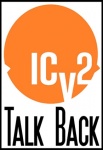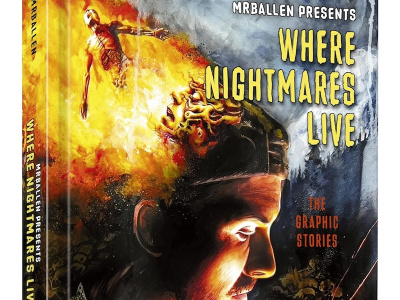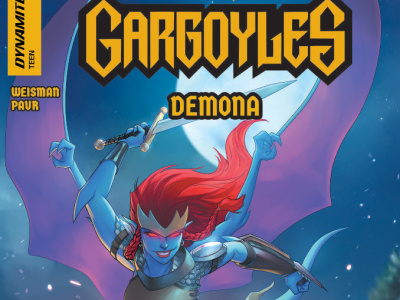 Chris Walsh of B-Bop Comics South in Prairie Village, Kansas has been following the recent Talk Backs commenting on current prices of comic books (see "Rick Newman of Pet Shop Comics & Collectibles on Buckley Interview" and "Michael Breakfield of Lone Star Comics on Comic Book Prices") and had this to say:
Chris Walsh of B-Bop Comics South in Prairie Village, Kansas has been following the recent Talk Backs commenting on current prices of comic books (see "Rick Newman of Pet Shop Comics & Collectibles on Buckley Interview" and "Michael Breakfield of Lone Star Comics on Comic Book Prices") and had this to say:I have been very interested in comments made by multiple comic shop professionals from other stores over the last 3-4 days. From Rick Newman and Michael Breakfield's comments on how comics are over-priced to their joint belief in the "rock star" perception of comic professionals, I couldn't agree more.
Marvel Publisher Dan Buckley's assertion that the $4 price point is indicative of the level of production and story-telling quality that is available on comic book shelves today is absurd. Glossier paper and decompressed storytelling, simply for the benefit of making a story fit to roll into trade paperback form, do not say "High production value" or "Competent creators" to me. In fact, many of Marvel and DC's books are written and drawn by B-List or even C-List talent, though it seems to have no effect on the price of the books. And Buckley's comment that "limited series and one-shots were already $3.99" in no way validates the idea that on-going titles should therefore cost more as well.
Kendall Swafford's second-hand relating of a Marvel employee's words couldn't be more accurate. Marvel definitely doesn't have a belief that they can sell a massive number of any one comic, despite the January 2009 success of the Obama Amazing Spider-Man issue. They would definitely rather have twenty titles selling 50,000 copies than ten books selling 100,000 copies. The why is a total mystery to me, since the easy fix is fewer titles by better creators, with fill-ins by the best of the B-List talent. It worked for most of the years between 1940 and 1990, so I don't see why we can't go back to the "old Coke" formula of the pre-Image days.
In answer to Kendall's thoughts on Disney's involvement with Marvel, I think it is obvious that the only active role Disney will play at Marvel in the near future is that they will benefit in the long-term from franchise rights to Marvel characters. I agree that the Marvel brass might learn some positive things from the Disney business model but I don't believe that level of interaction is occurring. Perhaps if it did, comics would be more accessible to young ladies and children again as well.
Finally, Rembert Parker's comments also have me wondering, can we as retailers make a difference?
I believe that Marvel (and possibly DC) are trying to squeeze out the brick-and-mortar stores in favor of self-distribution or services like Discount Comic Book Services. It's just another example of the little guys beings squeezed out by a small number of companies that want to corner the market. Steve Geppi has already done this with CGC, Diamond and Overstreet. So it makes a sort of twisted sense for Marvel to cut out retailers that get a 55% discount in favor of selling directly to readers who only get a 35% discount.
The fact of the matter is that none of the comic companies are making further profits off of non-CGC back issues that fill most the long boxes of most Direct Market stores. So why not shut those stores out by forcing them to deal with CGC or sell on-line through E-Bay? Eventually, all of this condensing will lead to a smaller and smaller control group that seizes the maximum profit.
To make matters worse, we are entering an October when DC will start caving in to the Marvel model by offering over 100 titles a month and about 50 percent of those will be $3.99 or more. Speaking for myself, I think this shift will cause a dip in DC sales that many retailers simply cannot afford.
The only real answer is to order as few of the expensive comics as you really don't need. In other words, if you have 5 subscribers and you can sell 5 additional shelf copies, you shouldn't be ordering 15-20 copies for the sake of snagging a variant or in the hopes that your customers will suddenly all win the lottery. There are so many superfluous and unnecessary limited series and one-shots that cost too much. If retailers refused to order these, might Marvel and DC hear the message? I'll use as my closing example the recent Valkyrie one-shot. As suggested by some of my colleagues named above, this story wasn't necessarily bad, but it could have easily served as a fill-in issue of Secret Avengers instead of costing readers the extra $4. And, perhaps, in even just one instance, a Secret Avengers reader saw that book and thought he just couldn't continue to afford to read Secret Avengers and all its ancillary tie-ins and that reader asked that Secret Avengers be removed from their pull file. Subtraction by addition, something that the brick-and-mortar stores which once saved the comic industry hardly need in these tough economic times.
The opinions expressed in this article are solely those of the writer, and do not necessarily reflect the views of the editorial staff of ICv2.com.







